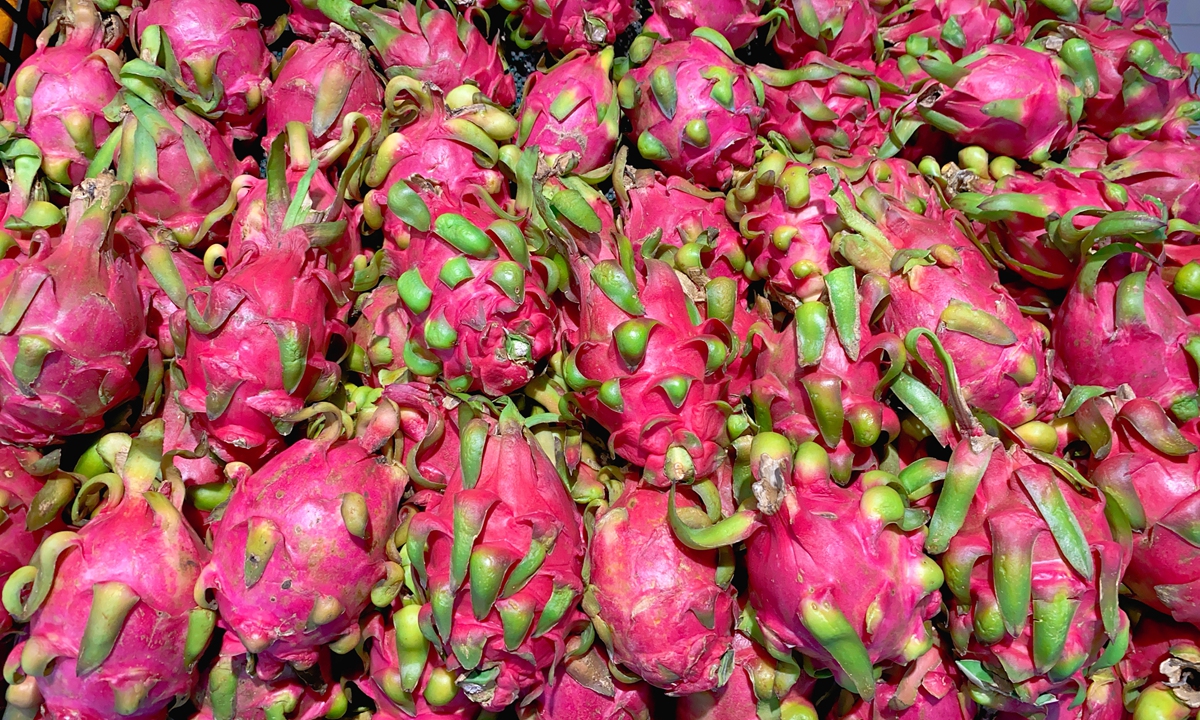
Dragon fruit Photo: VCG
Jinhua in East China's Zhejiang Province strengthened its COVID-19 prevention measures targeting imported fruit, following that outer packaging of imported dragon fruit from Vietnam was found virus positive after nucleic acid tests.
According to the notice of measures for imported fruit launched by Jinhua authorities on Sunday, stalls selling imported fruit shall be disinfected no less than twice a day, and persons directly exposed to the fruit shall be subject to nucleic acid testing every seven days.
Wholesale markets, farmer markets, and cold-chain inventory that are linked to imported fruits must implement the appointment system and purchase inspection system. Vehicles entering the market should submit an entry application, inspection and quarantine certificate, nucleic acid test report, and disinfection certificate through a market reservation platform more than one day in advance, according to the notice.
In addressing retail sales, farmer markets, shopping malls, supermarkets and fruit shops must implement the purchase inspection system for all shipments of imported fruit, and use the "Zhejiang Food Chain" system to record all the exit and entry details. Meanwhile, special channel purchases, special area storage, and special area sales should be implemented for imported fruit.
The strengthened measures came after imported Vietnamese dragon fruit and their outer packaging were found coronavirus positive in several fruit stalls in farmer markets and fruit shops in Jinhua from Thursday to Sunday.
In Taiyuan, capital of North China's Shanxi Province, some of the 50 boxes of dragon fruit imported from Vietnam and the outside packaging were tested positive for coronavirus. Between December 7 and 16, the entire shipment was sold, Taiyuan authorities said on December 26. All five close contacts tested negative for the virus and the six samples from the supermarket and other sites involved all returned negative results on December 25.
Similar cases were also recently reported in Central China's Hubei and Henan provinces. Authorities required residents who purchased fruits related to the epidemic to voluntarily report and undergo self-health observation and nucleic acid tests in a timely manner.




